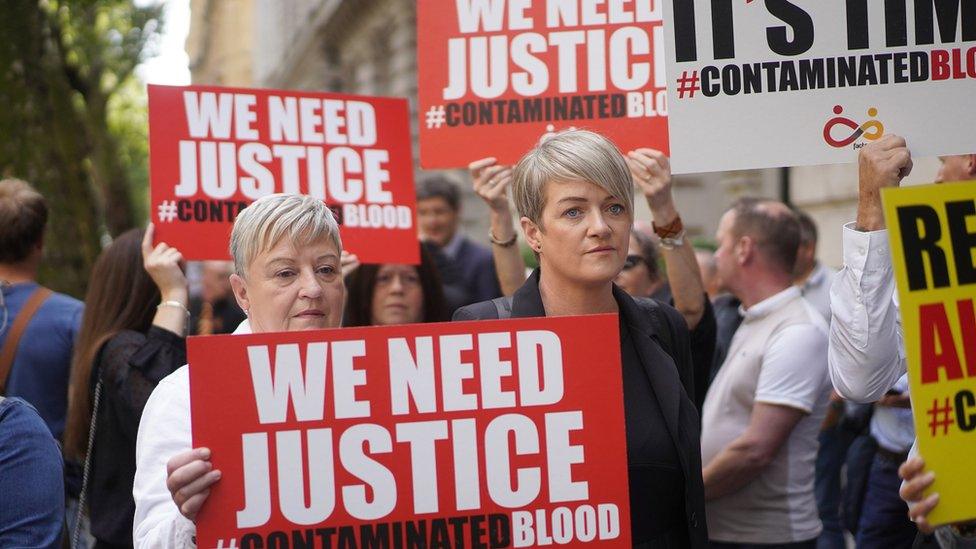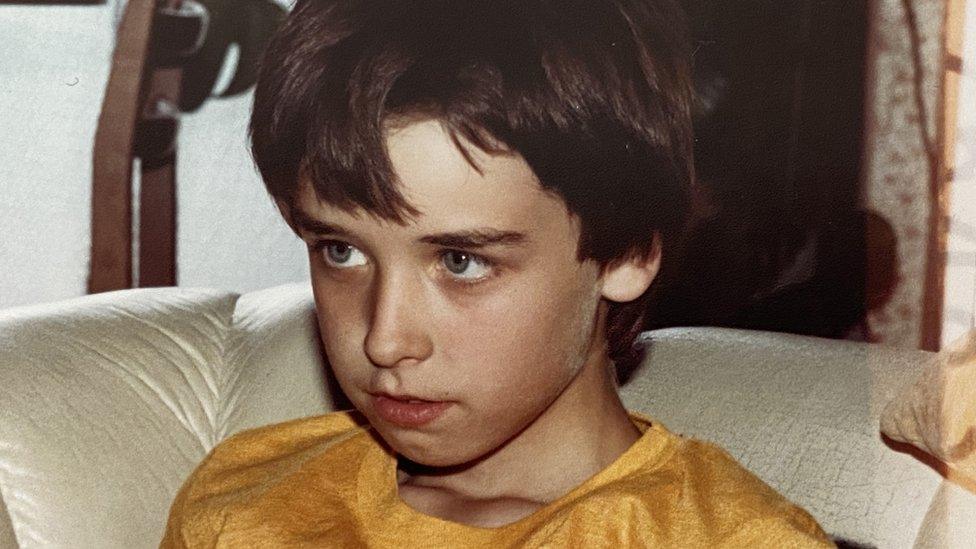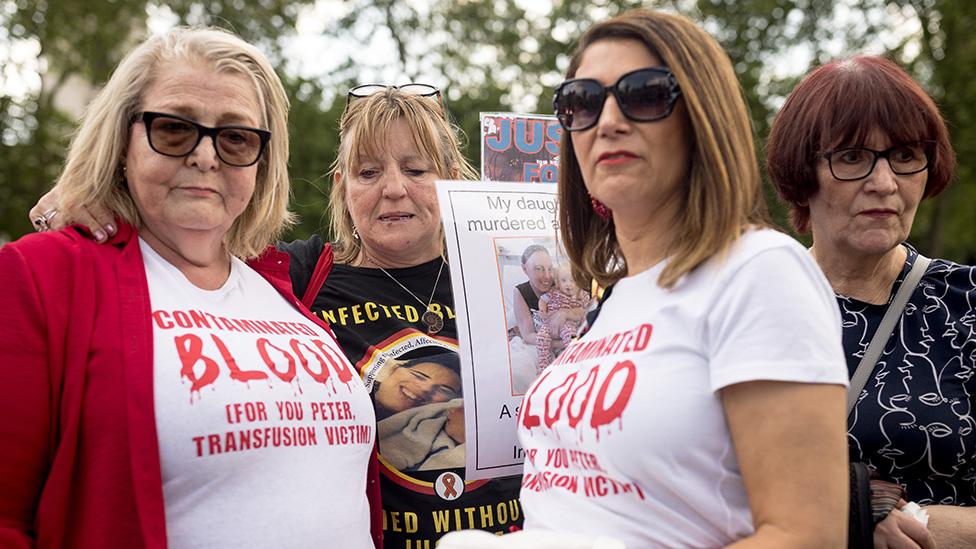Infected blood scandal compensation payments still not available
- Published

Campaigners for a compensation scheme gathered in London earlier this year
The government has said it is still not in a position to make a final decision on compensation for the victims of the infected blood scandal.
Earlier this month, the government lost a key vote designed to speed up the creation of a new body to administer and make payments.
Cabinet office minister John Glen said he recognised the anger of victims.
But he told the Commons it would be wrong to pre-judge the final report of a public inquiry due next year.
"For these reasons, the government is not yet in a position to share any final decisions on compensation," he said.
"However, members across this house have made clear that we must do right by the victims and the government recognises this, and I am personally committed to make sure that we do that."
Up to 30,000 patients were infected with HIV and hepatitis C through contaminated blood products in the 1970s and 1980s.
It is thought more than 3,000 people died in what has been described by MPs as the worst treatment disaster in NHS history.
The government has said there is a moral case for compensating victims of the scandal, and has made the first interim payments of £100,000 each to 4,000 surviving victims and bereaved partners.
On 4 December, MPs narrowly defeated the government in a vote to amend the Victims and Prisoners Bill.
That legislation, which still needs to be approved by the House of Lords before becoming law, would mean a new independent body would have to be set up within three months to administer full compensation payments to a wider group of victims and their relatives.
Campaigners say that one person affected by the scandal dies every four days, making the speed of compensation key.
'Significant impact'
Speaking in the Commons, Mr Glen said the government was still "working through the implications" of the amendment, adding that a final decision on compensation must consider both the victims of the scandal and the costs to the public sector.
"There are a number of technical issues that must be considered that would have a significant impact on public finances," he said.
"This is my highest priority and I will continue to progress this work with all the urgency it deserves."
A new psychological support service would be set up for victims and their families in England, to go live from early summer 2024, he added.
Earlier this year, Sir Brian Langstaff, who is chairing the long-running public inquiry into the scandal, called for a full compensation scheme to be set up immediately.
Mr Glen repeated that it would be inappropriate for the government to respond until its full findings have been published, a process currently expected to be completed in March 2024.
Responding, Labour MP Dame Diana Johnson, who put forward the amendment, said the government's statement would cause "huge anguish" to victims, and "fuel suspicion" ministers were trying to delay the payments.
"Justice delayed again will be justice denied for even more of those infected and affected in this scandal," she added.
The father of the house, Sir Peter Bottomley, one of 22 Conservative MPs who also voted for the amendment, said the government was still not doing enough for victims.
"If it's a question of money... and the cash flow of the government, say so now," he added.
Related topics
- Published6 October 2022

